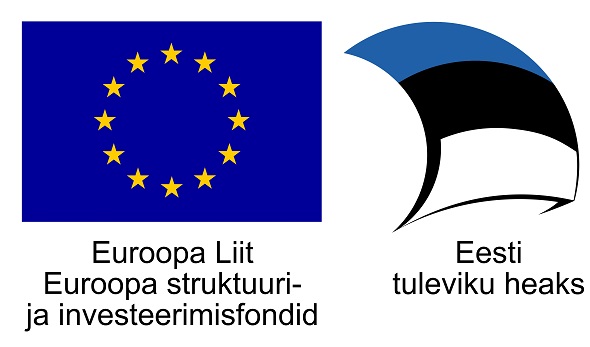Creative Entrepreneurship Academy Namibia 2023: “Heritage & Innovation: Finding Business Opportunities in our Cultural Roots”

The project of developing digital skills and entrepreneurship based on cultural heritage among the youth in Namibia includes Estonian and Namibian National Commissions for UNESCO, and the developers of culture and creative economy from Estonia – Loov Eesti and Viljandi Culture Academy.
The aim of the project is to raise awareness of heritage-based and creative economy entrepreneurship while applying digital technologies and engaging young people. Using intangible cultural heritage as an input in entrepreneurship guarantees a distinctive nature of the business and increases competitiveness. The young people who participate in the programme will acquire knowledge about product development, entrepreneurship, circular economy and digital technologies. It will improve their entrepreneurship competencies, which is beneficial for everyday life and forms a good basis for starting with entrepreneurship.
The broad cooperation between UNESCO and organisations within the mandate of UNESCO helps to achieve the sustainability of the cooperation, and, in a longer perspective, opens up the possibilities to use the tools and networks of a multilateral international organisation, e.g. wider cooperation in the South Africa region, UNESCO’s networks of creative cities, associated schools and chairs.
| TIME | |
| 9:00.9:15 | Cultural performance |
| 9:15-9:45 | Welcome: Mr Waldo Junius, Namibia National Commission for UNESCO Ms Kerli Gutman-Normak, Estonian National Commission for UNESCO (video) Ms. Eunice Smith, UNESCO Representative to Namibia |
| 9:45-9:55 | Mr. Gerard Vries, Deputy Executive Director – Lifelong Learning, Arts and Culture: The address will contextualise smart partnerships and strategic investments within Namibia’s Culture and Creative Sector. Furthermore, the statement will underscore the significance of harnessing the transformative power of digital technologies to drive the growth of a thriving cultural and creative sector in Namibia. |
| 9:55-10:35 | Ragnar Siil: “Shaping Creative Societies – how culture and creative industries can build more resilient communities” Why do countries around the world prioritise and invest in creative industries? How do we build a creative ecosystem that nurtures culture, creativity and entrepreneurial mindset? How can cultural heritage support innovation and growth? And how can digital technologies and business approaches support the preservation and development of cultural heritage? |
| 10:35-11:15 | “The state of play of preserving cultural heritage in Namibia” Mr Manfred !Gaeb., a Deputy Director, in the Directorate of Arts, under the Ministry of Education Arts and Culture. Mr Boyson Ngondo, an Acting Director, of the Directorate of National Heritage and Culture Programmes, Ministry of Education, Arts and Culture. |
| 11:15-12:00 | Discussion (Ragnar Siil,Mr Manfred !Gaeb, Mr Boyson Ngondo, Toomas Roolaid) |
| 12:00-12:35 | Break |
| 12:35-12:45 | Cultural performance |
| 12:45-13:20 | Juko-Mart Kõlar: “Entrepreneurship as a way of self-development: practical case studies” Juko-Mart Kõlar shares his personal story as an entrepreneur and discusses how to view entrepreneurial pursuits as valuable learning opportunities. Instead of “failing” or “succeeding” as a person or as an entrepreneur, how to use these experiences to build an engine of growth? |
| 13:20-13:45 | Examples of case studies from Namibia: Mr Joel Kaudife Haikali. Joel Kaudife Haikali is a Namibian creative entrepreneur. Since 2015, Joel and his partner Sophie Haikali, have been running Joe VisionProduction Tours (JVP) www.joe-vision.com and managed to produce award-winning films that were officially selected at international film festivals such as at Cannes, Berlinale, FESPACO, PAFF, DIFF just to mention the few. Their latest film “Invisibles Kaunapawa” was shortlisted for the Oscar 2021. |
| 13:45-14.30 | Lunch |
| 14:30-14:40 | Cultural performance |
| 14:40-15:15 | Ave Matsin: “How cultural heritage enriches the creative industries.” Heritage tells us stories about our ancestors, culture, history and nature. We can continue to tell the same stories through heritage-inspired products and services. In her presentation, Ave Matsin gives examples of creative applications of cultural heritage using the example of Estonian heritage crafts. |
| 15:15- 15:45 | Harald Lepisk: “Every person you meet is an opportunity to…” Great things start from good conversations. How to have deeper and more impactful conversations? How to attain the courage to reach out and start those conversations? |
| 15:45-15.55 | Cultural performance |
| 15:55-16:45 | Discussion with participants: World cafe format |
| 16:45-17:00 | Closing remarks |
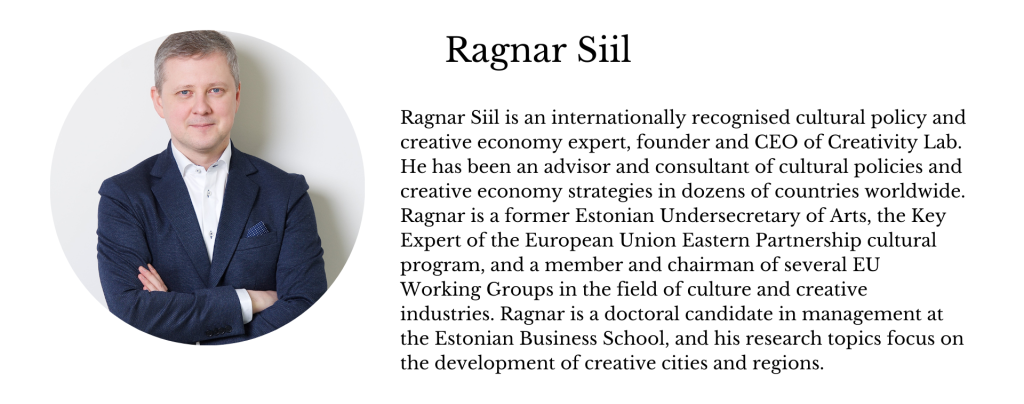
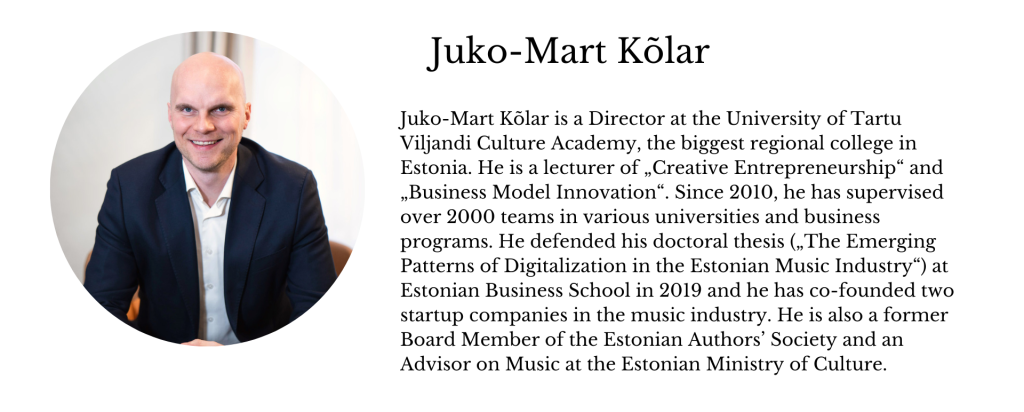
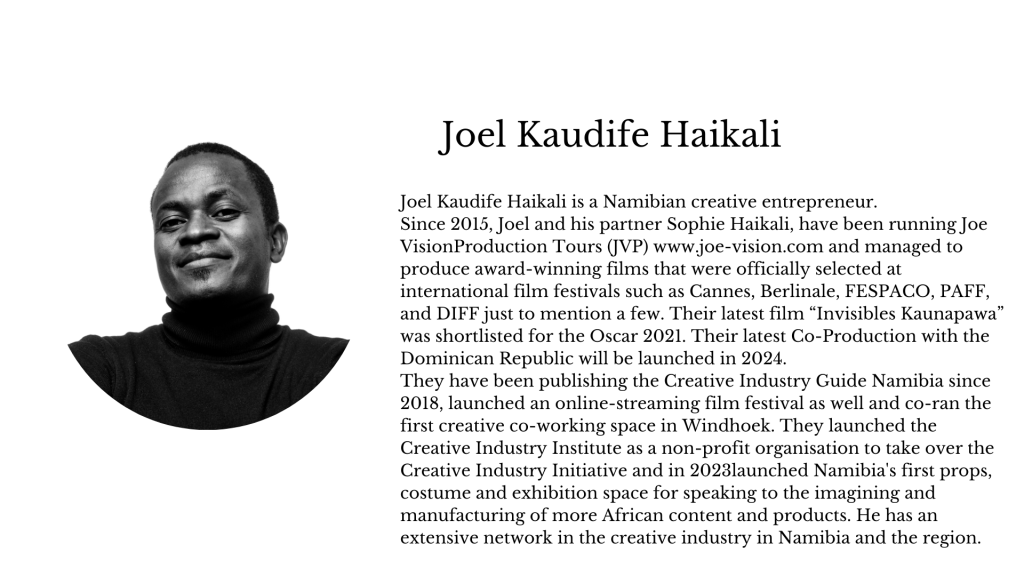
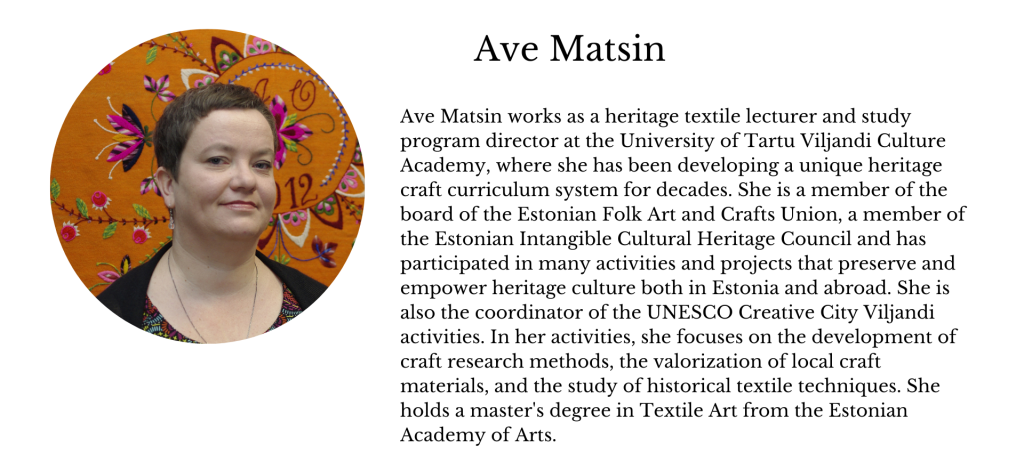
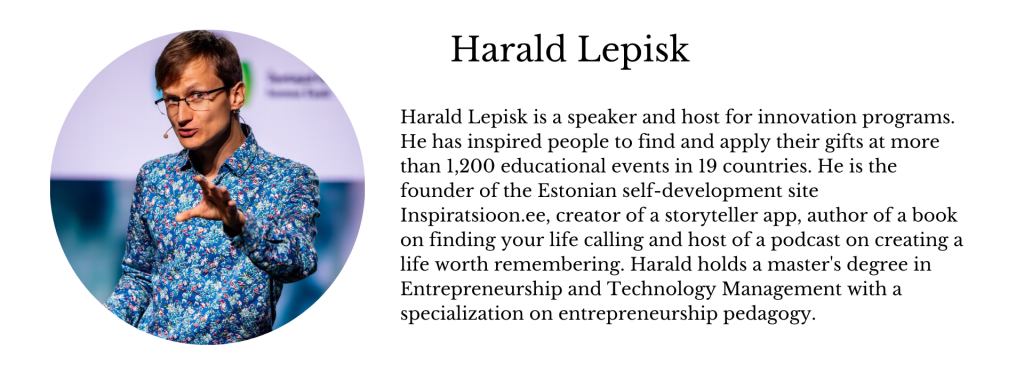
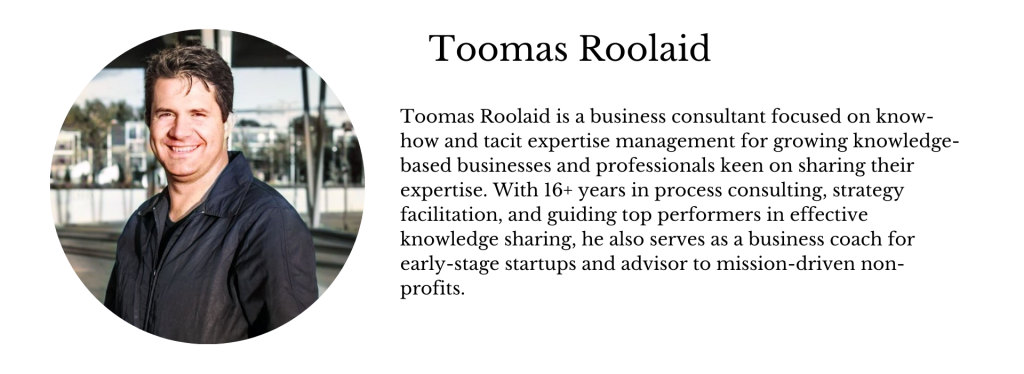
The Conference is organised by Creative Estonia and Namibia National Commission for UNESCO and funded by the Estonian Development Cooperation fund.




